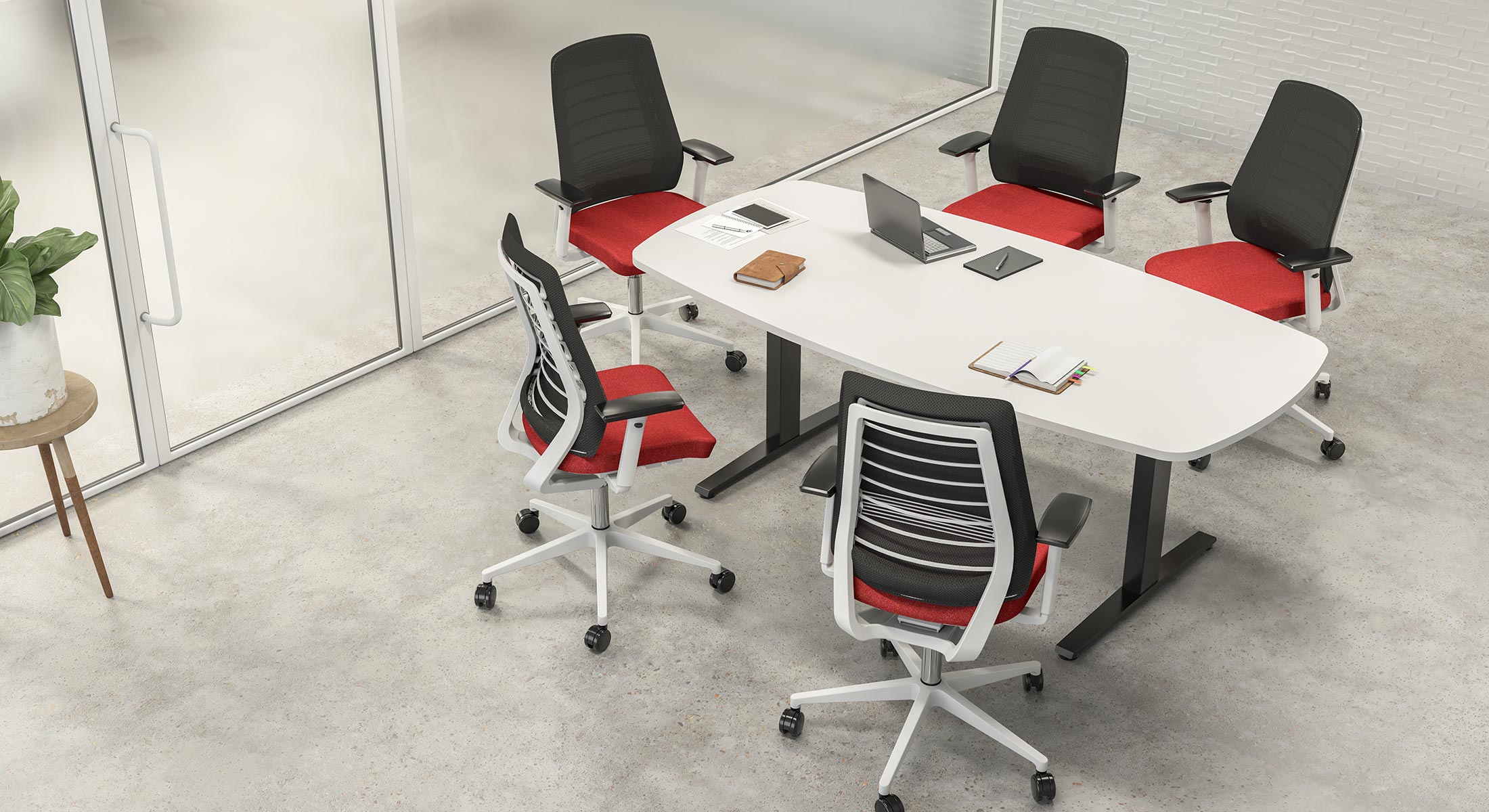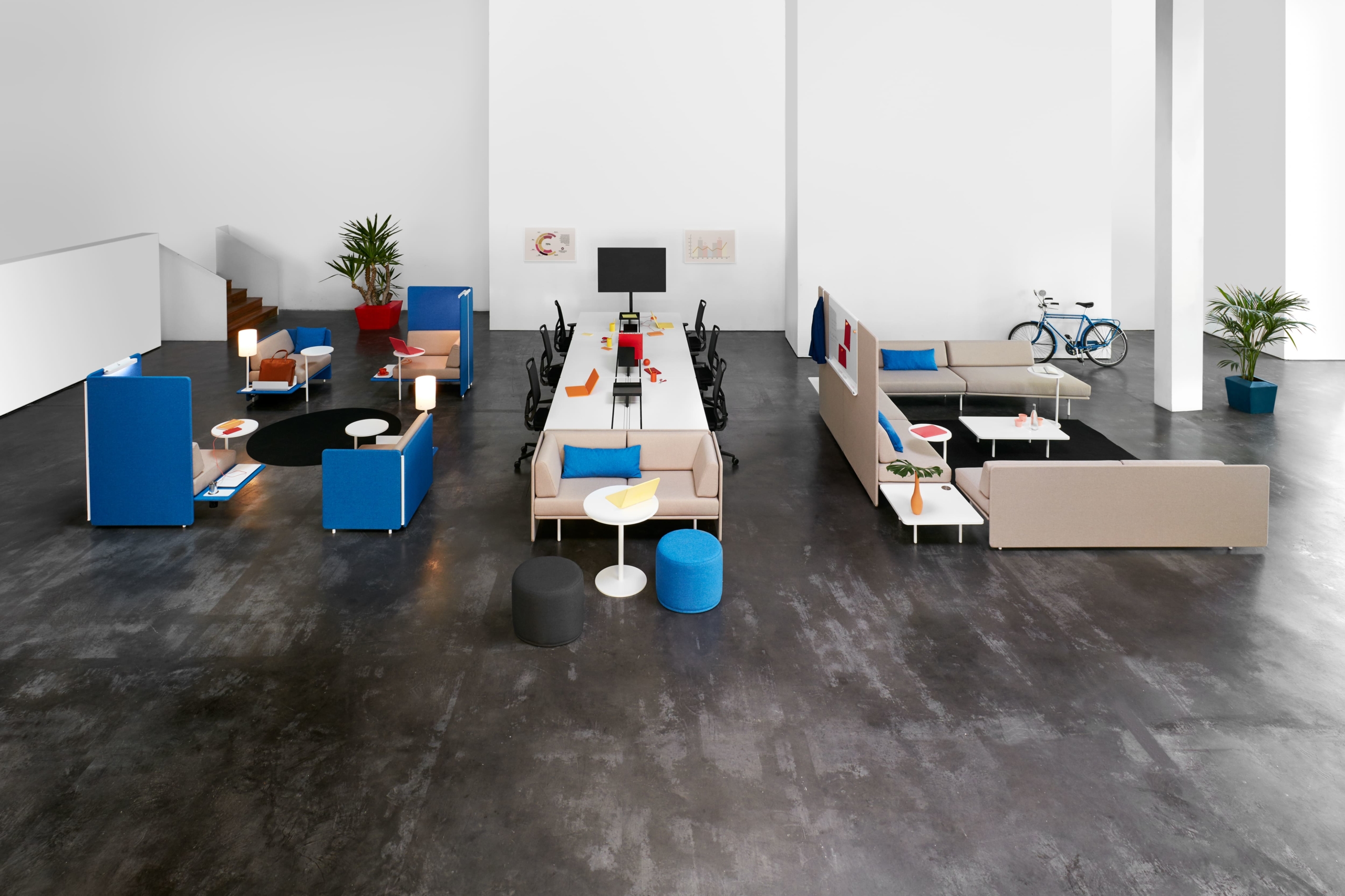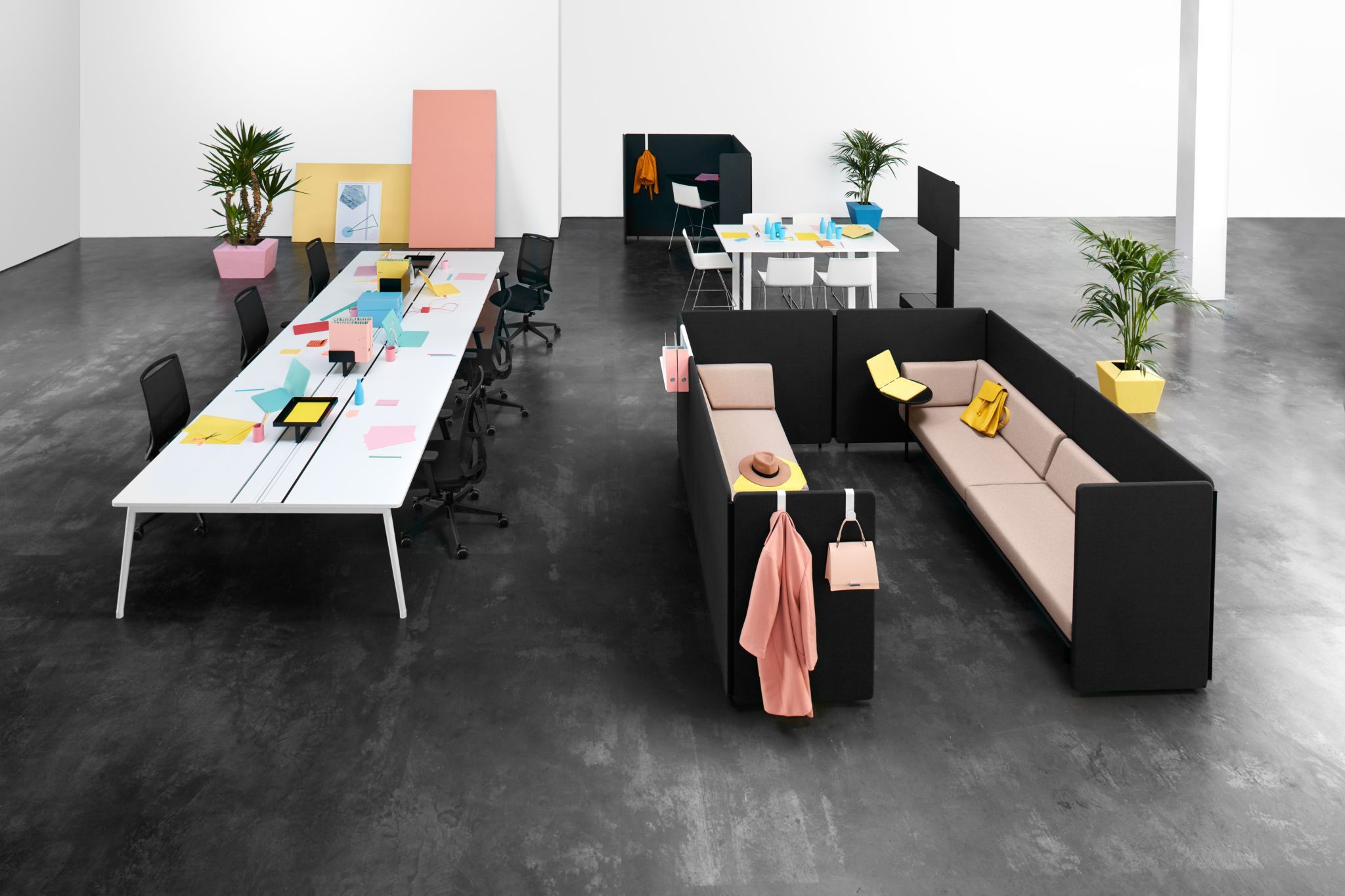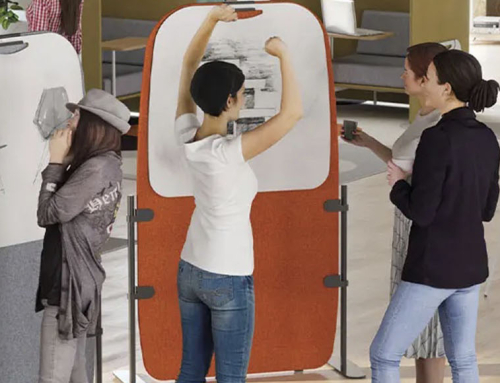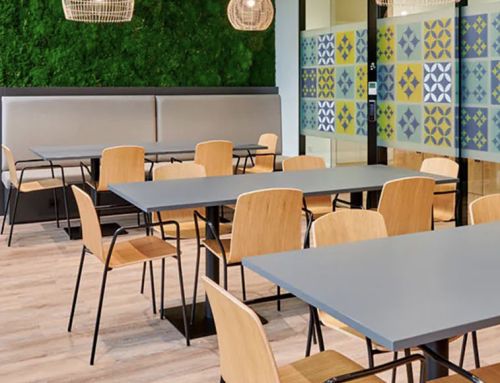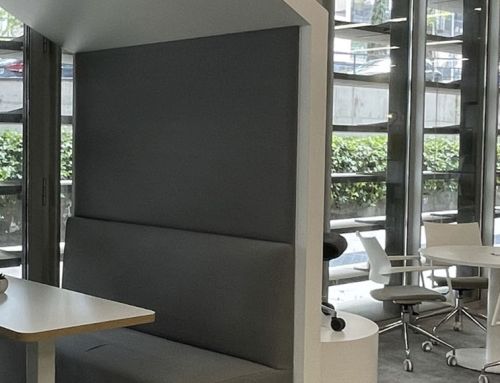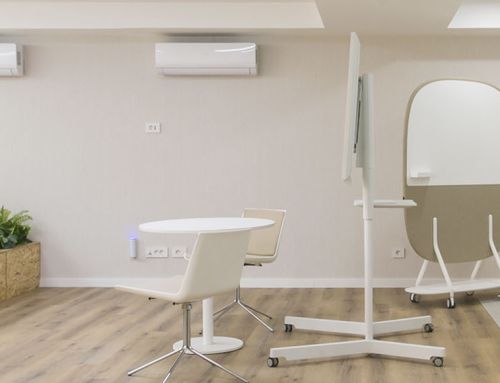We talk about nodal offices and humanization of work environments. Work spaces have undergone radical change. New competitiveness conditions of the global market along with the development of TICs and the progressive incorporation of new generations and corporate cultures have boosted new management methods. And especially new work dynamics and work spaces conceived for people.
The growing importance of talent in organizations and its values requires the creation of more human work environments, comfortable, safe and healthy. The new physiognomy of offices provides important benefits for employees in the form of motivation, flexibility, conciliation, health and quality of life at work.
Nodal offices for a new way to work and relate
New work methodologies are based on information, knowledge and collaboration. The configuration of more autonomous and organized teams in networks has boosted the development of new concepts of “nodal” offices. These are spaces for the exchange of ideas, creativity and information.
In these cases, offices are organized around cells oriented to specific projects or processes and with more common meeting areas both formal and informal which favour interaction between different cells.
Cellular organization is based on very autonomous work teams favouring collaboration, creativity and shared responsibility of its members; this way we increase their efficiency but also the motivation of employees. Hierarchical organization has given place to a network organization.
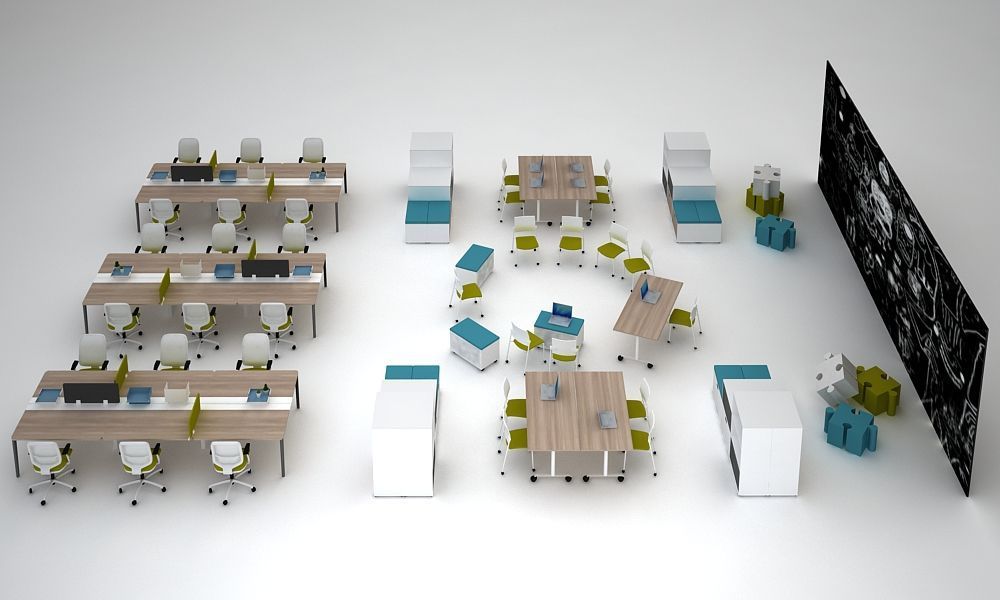
Within each cell there are different hierarchies and work positions which favour permanent contact and interaction with all its members are encouraged. New spaces for occasional duties requiring greater concentration are implemented. Each individual enjoys the most appropriate space for each activity performed and offices are organized around the needs and stimulus of people. Thus we talk about humanization.
The “domestication” of nodal offices
Borders between typologies are disappearing. Offices are domesticated with hints to the world of home which increase motivation, quality of life and satisfaction of employees and homes open to new uses (with domestic offices and small corners conceived for occasional work).
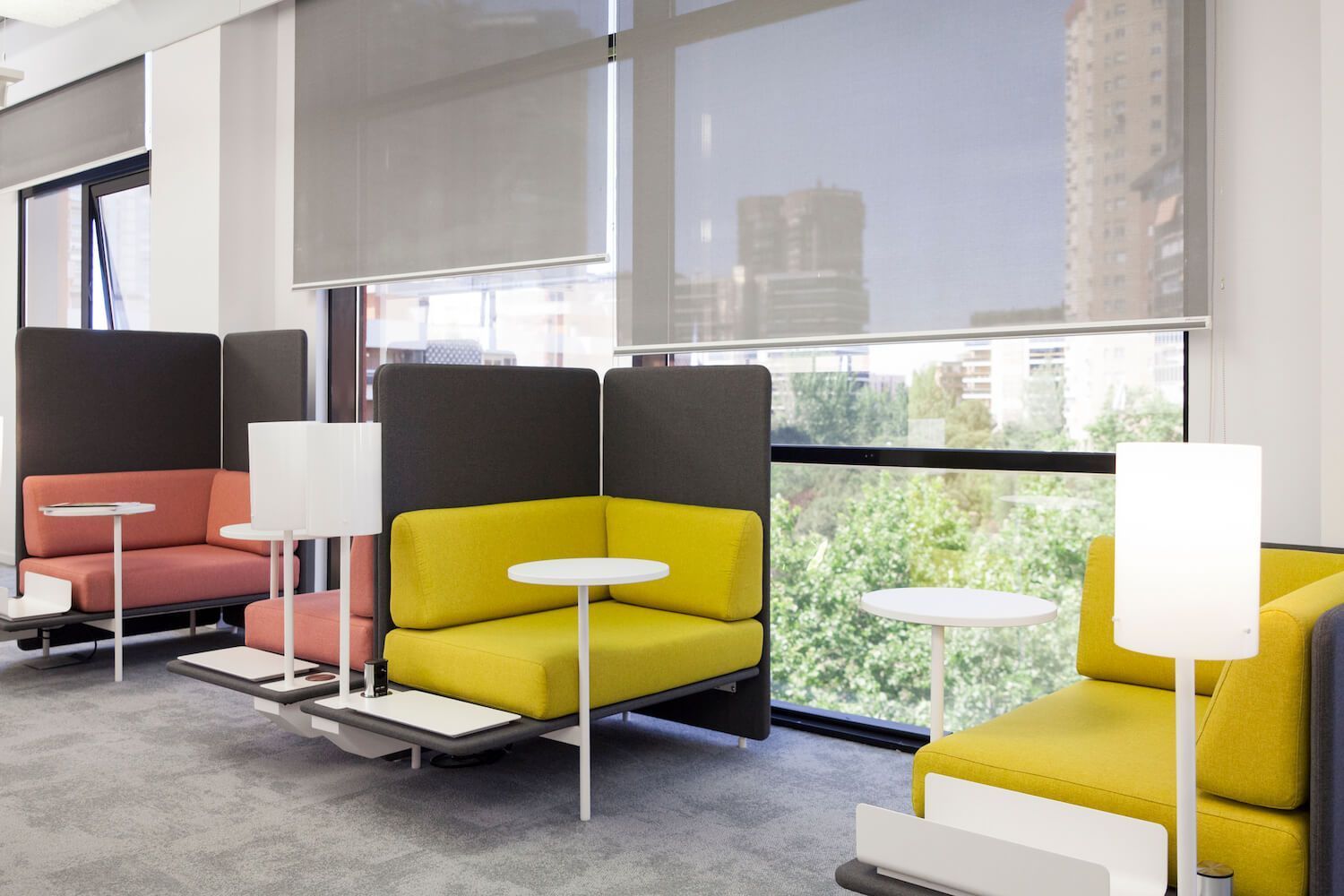
From an environmental point of view, “cloud computing” and flexibility of offices have offered a significant reduction of the impact of movements. This favours the creation of new types of work spaces such as the “hoteling”. Companies in addition to reducing their needs for space, spread the idea of “hotdesking” which eliminates the allocation of fixed work stations for each employee.
Offices and brand experience
The importance of branding has found in humanized offices the ideal space to provide brand experience. It is no longer a matter of creating spectacular offices but rather of expressing the values of transparency, efficiency, innovation and social responsibility which compose the corporate image of many companies. This expression is translated into the predominance of glass, wood, neutral colours, natural light, patios, amplitude of spaces and the reflection of sustainable environmental attitudes.
The style and personality of companies is expressed through the office which involves the need to customize both the space and its equipment and furniture.
Nodal and neighbouring offices
In an economy more and more based on knowledge, human capital acquires an essential importance. Today the “work-face” has little sense, i.e., paying an employee for its time. What is important are the results and in the extent these depend more and more of their creativity, qualification and knowledge it is necessary to be motivated, satisfied and in a stimulating environment.
The creation of less cold and more human work environments, comfortable and healthy is transforming the physiognomy of offices. Work spaces tend to pay ever more attention to aspects such as Feng Shui, biophilic design, ergonomics and inclusive design.
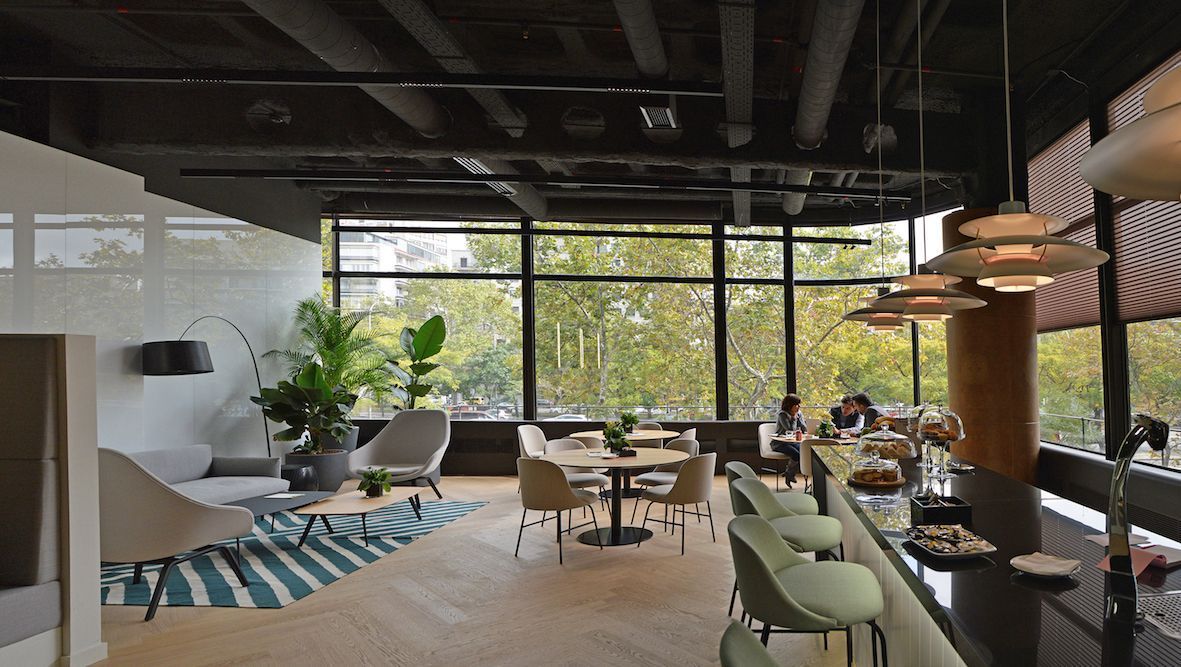
Savills Aguirre Newman, Madrid
At the same time, the importance of social relations is promoting the idea of neighbouring offices with the dissemination of “break spaces”, spaces to relax, play and hold informal meetings giving great importance to cafeterias; even with urban gardens inside offices.
Offices; a strong management tool
For all these reasons, work spaces acquire greater value as management tool with direct influence on the wellbeing and efficiency of people and on results of companies. The environment also stimulates our behaviour; therefore, its appropriate management means also managing the motivation of people.
In order to be satisfied with our work we need physical and mental balance. However according to a study performed several years ago by Ofita 36% of employees expressed some kind of complaint due to inappropriate aspects of the design of the work station mainly due to temperature, having little space or a very uncomfortable chair.
A good chair takes care of us at the office
The chair is one of the most important items of the work station. Ofita recommends office chairs that accompany users in all their movements such as the Hara model.
